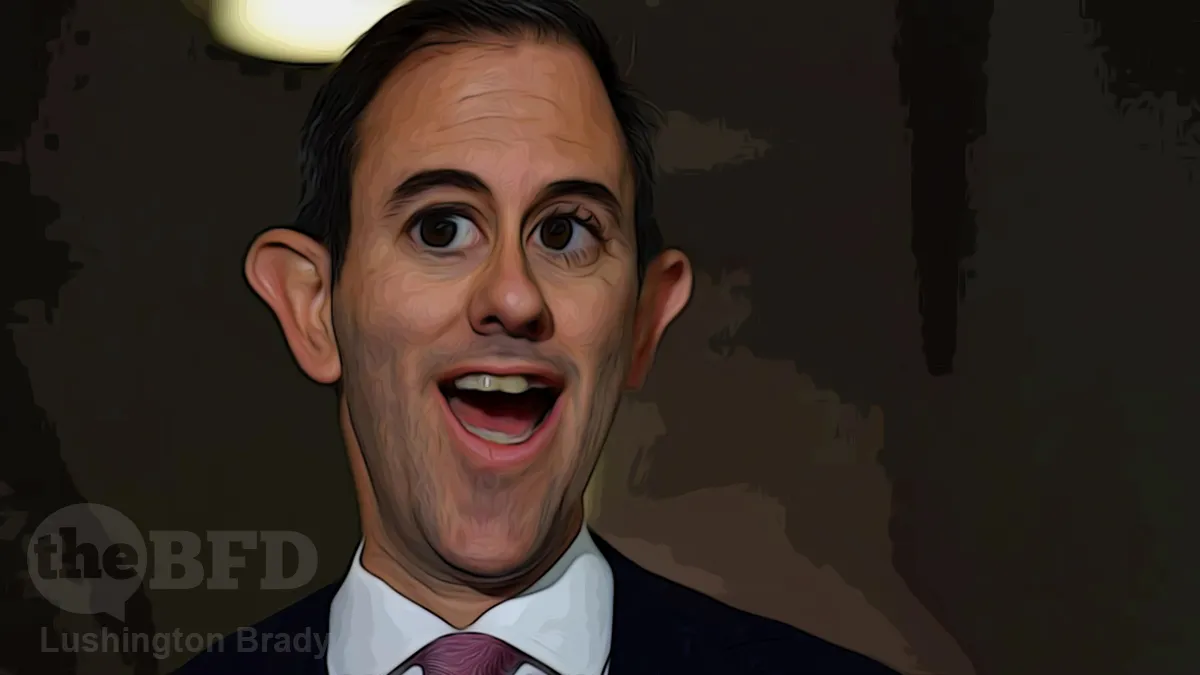Table of Contents
The sense is growing that Australian Treasurer Jim Chalmers’ second budget is not at all what the government is claiming. Far from a triumph of good economic management, economists are calling it a “smoke and mirrors” budget, with a “surplus” that amounts to little more than an accidental windfall of creative accounting.
Worse, unease is growing that the budget is whacking the working class lifters to reward the welfare leaners.
Betashares chief economist David Bassanese has called the budget surplus a “classic smoke and mirrors exercise” and said the Reserve Bank of Australia (RBA) could be inclined to raise rates.
The biggest problem is that, at a time when the Reserve Bank is desperately trying to reign in inflation, the government is splashing other peoples’ money in a spending splurge that will — despite the government’s furious denials — push inflation higher.
“Contrary to all the talk of a surprise budget surplus for 2022-23, the 2nd Labor Budget under Treasurer Jim Chalmers is unambiguously expansionary, with a boost to GDP growth equivalent to around 1.5pc over the next two years,” he said in a statement on Wednesday.
“This adds to the risk that the RBA will feel the need to raise interest rates at least once and possibly twice more in the coming months.”
Mr Bassanese said it was “very unusual” to focus on the budget outcome of the current financial year.
“But in a classic smoke and mirrors exercise, the Treasurer has so far managed to successfully divert attention towards this year’s “accidental” surplus – caused by the late discovery of a lot more revenue than expected which the government simply did not get a chance to spend in the remaining weeks of this financial year.”
The Australian
Across the board, the government is behaving in true Labor fashion and throwing money at every unproductive lobby group.
Increases to JobSeeker payments, rent assistance, energy bill subsidies, cheaper medicines, and a boost to wages all have the effect of putting more money into people’s pockets.
The bulk of the spending programs are aimed at those on the lowest incomes and welfare recipients.
And no Labor spending spree is complete without Julia Gillard’s insatiable monster, the NDIS.
NDIS Minister Bill Shorten insists the annual growth target of eight per cent by 2026 for the scheme is not a cap and that it could help operate the NDIS properly.
It says everything we need to know about this uncontrollable fiscal black hole that 8% growth could be even considered a “cap”. Even Shorten admits that the scheme is, by design, demand driven.
But Shorten is nothing if not an optimist.
“Well, I’m confident that if we put proper resources into the system to run [NDIS] that we can eliminate unethical conduct,” he told Sky News on Wednesday morning.
“I honestly believe we can moderate the cost of growth in the scheme by running the scheme properly in the best interest of participants.”
The Australian
And if you believe that, I’ve got a bridge to sell you.
Others have noticed another shifty switcheroo by Treasurer Zippy.
One of Australia’s top doctors says the centrepiece of last night’s federal budget – a supposed increase in the availability of bulk-billing for medical treatment – is misleading.
Treasurer Jim Chalmers committed to spending $3.5 billion to triple the incentive paid to doctors who bulk-bill patients, with the Labor government saying this will make 11.6 million individuals eligible for cut-price treatment.
Bulk billing means the patient pays nothing for a doctor visit, because Medicare pays the provider the full cost of the consultation.
As Nick Coatsworth points out, the key word there is “eligible”.
The tripling for the incentive for doctors to bulk bill will only apply to those aged under 16, pensioners, and concession card holders.
In any case, even the increased spending means that every time a GP bulk bills, they’re effectively doing themselves out of nearly twenty bucks.
Dr Coatsworth said that on average a GP charges $80 for a 20-minute consultation. Previously, the government would cover $40 while the patient would pay the other half.
Now, under the new plans, the government will cover $62 but the patient will not contribute, leaving the GP $18 out of pocket.
Daily Mail
What was the old saying about a socialist and other peoples’ money?









